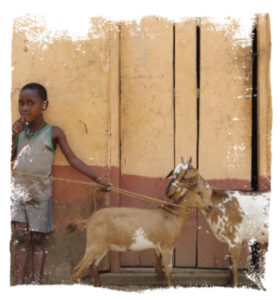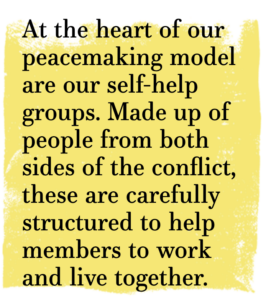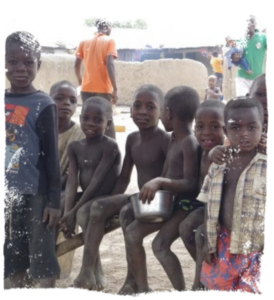At its root lies issues of land ownership, power, and identity. Outbreaks of widespread violence have been rare but devastating, leaving communities fractured and divided.
More than 400 villages destroyed. Up to 12,000 people killed and over 150,000 displaced. And then there’s the huge loss of goods and animals too. Limited government or outside investment has only compounded the poverty and division.
It wasn’t always like this though. The two tribes used to live in mixed villages and often intermarried. People even spoke each other’s language. Could a similar state of harmony exist again? It was with that hope that CHIPS was invited to the area.
Living as an example
Since 2011, we’ve been living and working among both sides, delivering a range of grassroots projects that address the root causes of tension and create new, positive relationships.
The CHIPS Ghana team serves as an example of peacemaking in action, and presents a vision for what is possible. Made up of families from both sides of the conflict, our ethnically-mixed team lives and works together as one. Our base is built on land where some of the first people were killed in a major outbreak of violence in 1994.
Practical peacemaking projects
Our team goes out from this shared home to the surrounding villages taking people from both sides – Konkomba and Nanumba working together. They are able to speak both languages and relate to both sides and cultures.
We run practical peacemaking projects that seek to break down barriers and build trust, addressing the causes of conflict including poverty and creating opportunities for sustainable development.
At the heart of our peacemaking model are our self-help groups. Made up of people from both sides of the conflict, these are carefully designed to help members learn to work and live together once more.
Our six projects are:
• Agriculture – animal rearing and crop farming groups that bring both sides together and help diversify income and food chain
• Beekeeping – training and supporting groups made up of both sides to harvest honey and generate a new source of income
• Savings and loan groups – helping former enemies to save, borrow and trade together from their pooled resources
• Animal health – training and mobilising Community Animal Health Workers to vaccinate and treat animals on both sides
• Sanitation and hygiene – helping communities stay clean and healthy, for example by helping them build toilets and organise village clean-ups together
• Natural medicine – supporting the use of natural remedies for common ailments at home, saving people time and money
Through a long-term, deeply embedded presence the CHIPS Ghana team is helping to build a new network of relationships that cross the divide. As our work grows, we’re coming ever-closer to our vision of building a sustainable future, free from conflict.



